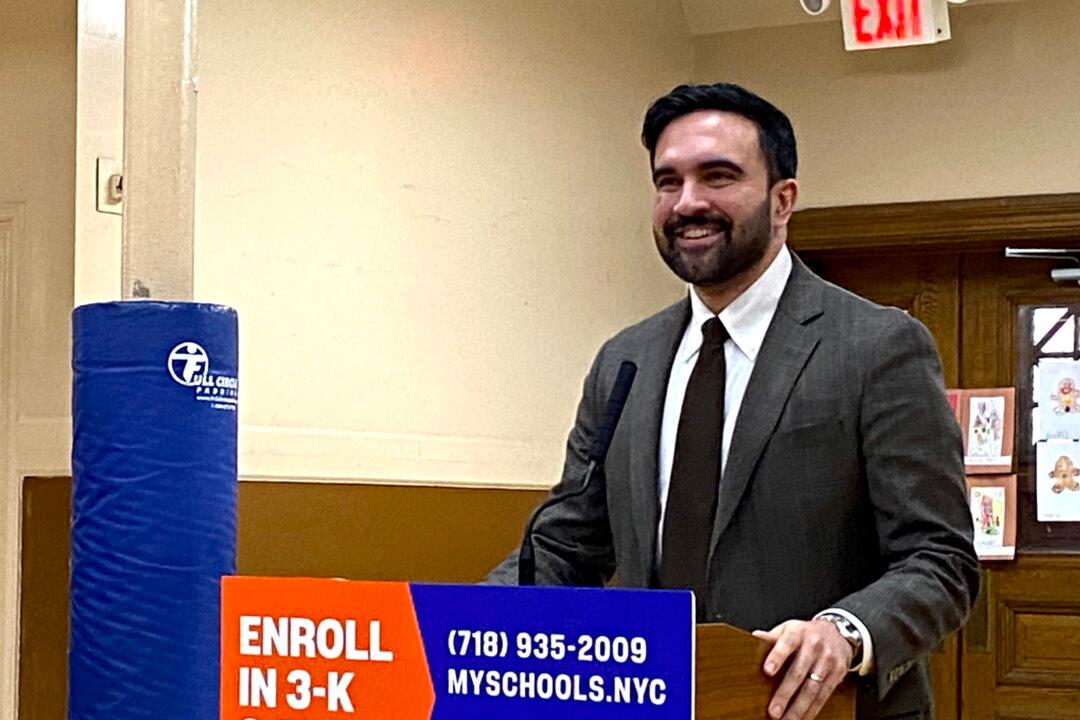NEW YORK—State financial regulators are well under way to make New York the first state to spearhead regulations for virtual currencies like bitcoin. As popularity of digital currencies continues to grow at an unprecedented rate, regulations for the new marketplace could be written as early as this year, according to Benjamin Lawsky, head of New York State’s Department of Financial Services.
The department heard from venture capitalists, retailers, and law enforcement officials last week at two days of hearings held in Manhattan on virtual currencies. State regulators hoped to get a full view of virtual currency at the hearings before writing new regulations, which may include what the department has called a BitLicense.
Bitcoins have no central issuing authority but they are already rewiring how the world moves money.
Last March, the federal government passed the responsibility of regulating digital currencies to the states. The Treasury Department’s Financial Crimes Enforcement Network, which handles money laundering, said states may regulate digital currency firms as money transmitters. California and New York are the first states looking into issuing such regulations.
As the popularity of digital currencies continues to skyrocket, the state’s financial regulators are faced with negotiating a complex balance between strengthening the fledgling virtual currency market while providing ample protections against money laundering.
Ideally such a balance would encourage businesses to adopt best practices to stay competitive. But with too much regulation, the scale may dip in the other direction, said Lawsky, turning the market into a race to the bottom, with companies cutting corners to outperform competitors.
“When we have enough regulation without overburdensome regulation, we often see that flipping around,” Lawsky said. “We have a race to the top. The companies that are doing all the right things that are more secure, safer, end up getting a competitive advantage.”
The reality of money laundering using virtual currencies was thrust to the forefront on the day before the hearings. The head of a bitcoin exchange was an indicted on charges of laundering $1 million for users of an Internet black market.
Eyes on New York
Many are watching closely how New York, a global financial center, handles virtual currencies. People from 108 countries watched the webcast of the hearings in Manhattan.
In another sign of growing interest, New York City’s Economic Development Corporation also held a Bitcoin breakfast on Jan. 28 with banks and financial service companies. That evening Wells Fargo hosted a panel discussion about Bitcoin.
Two major online retailers accept bitcoin, TigerDirect.com and Overstock.com. Overstock began accepting bitcoin on Jan. 9 and did just under 700 transactions valued at $130,000 that day. Since then it has done over 3,000 bitcoin transactions worth $600,000.
Overstock’s Executive Vice Chairman Jonathan Johnson spoke to financial regulators at the hearing. Overstock is working with a digital wallet called Coinbase. When customers pay Overstock in bitcoins the retailer immediately converts it into cash through Coinbase to avoid losing money as bitcoin’s value fluctuates.
Digital Currencies
Ease of use is quickly making bitcoin and other virtual currencies increasingly popular. At the end of August 2013, the value of all bitcoins was greater than $1.5 billion. At the end of January this year, there were 12 million bitcoins in circulation worth $10 billion. A bitcoin is currently worth about $800.
Virtual currencies like bitcoin have enormous potential because they are decentralized. That makes global transactions on the Internet fast and relatively cheap. It also means bitcoins are untaxed and unregulated at the moment.
Bitcoin transactions and the creation of new bitcoins are controlled through cryptography, a branch of mathematics that is used to achieve high security. All transactions can also be monitored on a public ledger called the blockchain.
Unlike credit card transactions where the buyer has to give each vendor access to his or her account and authorize a vendor to take the right amount, “here is access to my account, please take only x dollars,” bitcoins work like cash where a buyer simply hands over the correct amount of money rather than granting the vendor access to his or her account. This also makes bitcoin transactions more secure than credit card transactions as there is no need to send account access information to vendors over and over again.
Money Laundering Concerns
Those seeking to transfer illicitly acquired money have jumped at the money-laundering potential of virtual currencies. Several shady banking operations including Liberty Reserve and Western Express have been shut down by federal authorities for conspiring to launder money for clients with virtual currency.
At the hearing Jan. 29 law enforcement urged strong government oversight. It warned that without oversight cybercriminals, identity thieves, drug traffickers, and peddlers of child pornography would be operating in a “digital Wild West.”
“The reality today is the Internet is our 21st century crime scene,” said Manhattan District Attorney Cyrus Vance Jr., speaking at the hearing Wednesday.
Vance and Deputy U.S. Attorney for the Southern District of New York Richard Zabel urged regulators to require digital currency exchangers to be licensed as money transmitters. Money transmitters like Western Union and MoneyGram are required to report the money they remit on behalf of customers. Such reporting is critical for criminal investigations said Zabel and could be a key tool for law enforcement in tracking virtual currency transactions.
On Jan. 27, the day before the digital currency hearings, federal prosecutors in New York indicted Charlie Shrem, head of BitInstant, a digital currency exchange company. BitInstant was charged with conspiring to launder more than $1 million in bitcoin for customers of Silk Road, an Internet black market.
At the hearings on the day after Shrem’s indictment, Lawsky said money-laundering concerns are paramount. If regulators can’t protect against criminals moving laundered money around to fund global terrorism and drug trafficking, Lawsky said, then a digital currency is not worth having.
Investor Concerns
Venture capitalists who testified at the hearings dismissed concern about actors like Shrem of BitInstant, saying the arrest shows the system is working. They urged regulators to use the existing regulatory framework and apply that rather than creating a new tailored framework for virtual currencies.
Despite their concerns about over-regulation, the investors agreed that regulation is necessary and that clarity on what that regulation will be is good for the growth of the virtual currency ecosystem.
Coinbase co-founder Fred Ehrsam went further encouraging regulators to require exchanges to thoroughly vet clients and comply with established anti-money-laundering practices used by financial services firms. He said Coinbase only deals with reliable exchanges that vet their customers.
What troubles investors most, said Jeremy Liew of Lightspeed Ventures, is when a country takes no stance on how it will handle virtual currency. Investors won’t act if their actions might later be found to be against the law.
It is precisely uncertainty about regulation that is holding up Willard Ling, who bought a new Bitcoin ATM in early January. He is waiting to make sure he is in compliance with all necessary regulations in New York before deploying the ATM in New York City.
“I definitely don’t want to be in violation of any rules or regulations by putting the device for the public,” said Ling by email.
Ling watched the first day of the hearings online and attended the second day in person. He said that many in the audience viewed the possibility of a BitLicence as a magic bullet, but thought that won’t likely be the case as regulators look to safeguard against crimes like drug trafficking.
“I am hopeful that the subsequent regulations will be developed intelligently and effectively,” Ling said.




